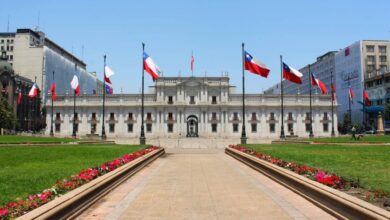According to the RELIAL Institutional Quality Index, no country in Latin America enters the top 20. What are the most prominent countries? .

Photo: Freepik
LatinAmerican Post | Santiago Gómez Hernández
Listen to this article
Leer en español: Latinoamérica saca deficiente en Calidad Institucional
The Liberal Network for Latin America once again released its Institutional Quality Index (ICI) focused on the aftermath of the pandemic in 2022. The institution, of a liberal nature and defender of the free market, tries to determine institutional stability based on the variables of political and democratic stability and market opening. According to this ranking, the vast majority of countries in the region show a deterioration in their institutional quality associated with the consequences of the COVID-19 pandemic.
No Latin American country appears within the top 20 positions in the report. This shows, according to RELIAL, that there is little market opening, and political and democratic stability. However, Chile is the country in the area that is closest to the leader's squad, with 24th place.
You may also be interested in: Petro and Boric: a Latin American Left Different from the Socialism of the 21st Century
After Chile, there are countries like Uruguay (31), Costa Rica (36), Panama (63), Peru (71), Dominican Republic (80), Mexico (84), Colombia (87), El Salvador (100), Paraguay (101), Paraguay (103), Guatemala (110), Argentina (116), Ecuador (121), Honduras (129), Nicaragua (148), Bolivia (149), Cuba (150) and Venezuela (180).
The organization warned that during the pandemic, several countries and governments took advantage of the panic to use authoritarian and control tools. Emphasizing that in Latin America, due to the absence or weakness of the rule of law, these measures were much more arbitrary. Additionally, they highlight that numerous elections and democratic processes had to be postponed, as is the case in Jamaica and Haiti.
Countries with Models in Decline
The report also highlights those countries whose position has been falling for decades. Since 1996, the year in which this list began to be recorded, many countries in the region have been worsening in the ranking, such as El Salvador (from 57 to 100), Argentina (44 to 116), Ecuador (from 70 to 121), Honduras (from position 76 to 129), Nicaragua (85 to 148), Bolivia (from 40 to 149) and Venezuela, which went from position 109 to 180. This, within 183 countries analyzed.
The Countries with the Best Institutional Quality
Within the top 10 appear an oceanic country, an American and eight Europeans. It is precisely the oceanic, New Zealand, who leads the list. Right after the island, Switzerland, Denmark, Finland, the Netherlands, Norway, Sweden, Luxembourg, Ireland, and Canada appear, in order. To close the Top 20 list are: Australia, Iceland, Austria, United Kingdom, Germany, Estonia, United States, Taiwan, Belgium, and Japan. This shows a notable absence of Latin countries.
These results reflect a tendency for countries like New Zealand to always be in the top positions. This, even after post-pandemic moments, where, it is assumed, there were greater restrictions.
The Countries with the Worst Institutional Quality
Among the 10 countries with the worst numbers, seven African countries, two Asian countries and one Latin American country stand out. Venezuela ranks 180, only surpassed in the worst institutional quality index by Yemen (Asia), Eritrea (Africa) and North Korea (Asia). The top is completed by Burundi (173), Chad (174), Sudan (175), Democratic Republic of the Congo (176), Libya (177), South Sudan (178) and Syria (179). However, on average, Latin America performs better than regions such as Africa, the Middle East and Central Asia. But with indicators similar to indochina.





